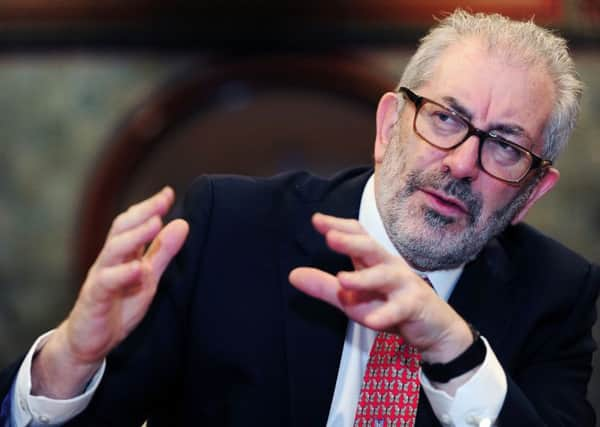YP Comment: Put Yorkshire entrepreneurs in the devolution driving seat


As a much-respected former chief executive of Sheffield City Council, he has an intrinsic understanding of the North’s untapped potential at a time when there is so much emphasis on empowering the English regions.
Yet, since this proverbial poacher turned gamekeeper moved to London to pursue a career which saw him become head of the civil service, this ultimate political insider also knows how Whitehall’s power-brokers perceive local authority leaders.
Advertisement
Hide AdAdvertisement
Hide AdAnd when someone as experienced as Lord Kerslake says that business leaders need a far greater input in the devolution debate, it is imperative that Yorkshire’s council chiefs – and also Ministers in London – listen to such wisdom and insight.
Highlighting the importance of local enterprise partnerships and their transitional role if and when a deal is finally struck with the Treasury, Lord Kerslake makes a profound point when he says industrialists are far more global in their outlook than local leaders.
He is right. Yorkshire needs to become even more dynamic, and even less parochial, if it is maximise the dividend which it can yield from this once-in-a-generation opportunity to rebalance the national economy so this country is less dependent on London for its future wealth. Unlike politicians with territorial boundaries to defend at every election, industrialists have much broader horizons. The challenge now is convincing more business leaders to play an active role in Yorkshire’s future when the pedestrian pace of decision-making in public sector will be at odds with their own experiences and expectations.
Electric shock. Where is the long-term energy plan?
EN though David Cameron and George Osborne continue to place great faith in their “long-term economic plan”, four words guaranteed to raise a cheer from Tory MPs whenever they’re uttered, they don’t realise that this soundbite will backfire unless it is backed up by a coherent energy strategy to power homes and businesses in the future.
Advertisement
Hide AdAdvertisement
Hide AdIt is a guarantee which can no longer be provided with any degree of confidence. For, as the Institution of Mechanical Engineers makes clear in a damning report, the Government’s proposed power plants simply do not have sufficient capacity – even if built on time – to replace those which are being phased out. Indeed the closure of the last coal-fired power stations is being compounded by the painfully slow progress that has been made on the replacement of Britain’s nuclear plants and the Government’s short-sighted decision to abort a pioneering carbon capture scheme in Yorkshire which had the potential to breathe new life into the last embers of this country’s coal industry.
The consequences? Locally, it increases the likelihood of Ministers imposing fracking on areas, like Ryedale, which remain hostile to the extraction of shale gas on environmental and health grounds.
Nationally, the likely rise in electricity costs will hinder industry. Internationally, the UK will find itself at the mercy of unstable countries such as Russia which have an abundance of energy. In the wake of the Kremlin’s state-sponsored execution of former spy Alexander Litvinenko on the streets of London, do Ministers seriously think that this is advisable – or prudent – if there is not to be a repeat of the blackouts which so crippled Britain in the 1970s?
A prime Minister? Cecil Parkinson is remembered
ONE of the architects of Margaret Thatcher’s political revolution in the 1980s, Cecil Parkinson will always be remembered as a potential prime minister whose career was cut short by his adultery. Yet this should not detract from the achievements of the railway worker’s son, and one-time Labour party activist, whose entrepreneurial flair helped the Thatcher government to finally free Britain from the shackles of the trade union movement.
Advertisement
Hide AdAdvertisement
Hide AdHowever, as time catches up with the last survivors of Mrs Thatcher’s governments, it is worth contrasting their experience with the outlook of today’s leaders. Towering individuals whose thinking was influenced by the horrors of World War Two, they were successful businessmen who knew how to create jobs and wealth. Like it or not, such leadership and experience is much missed in the corridors of power today.